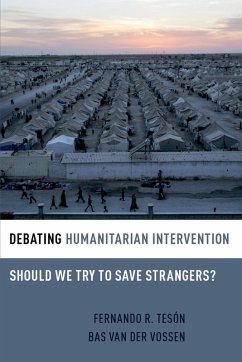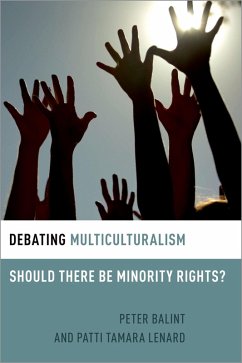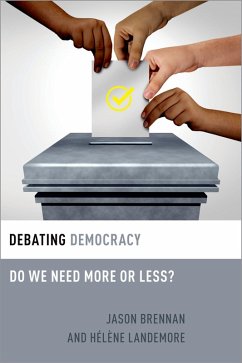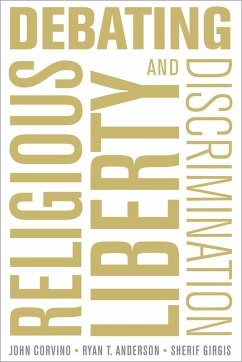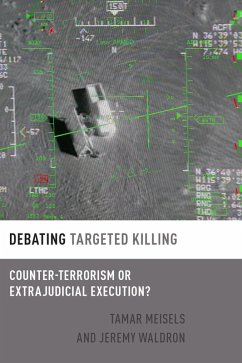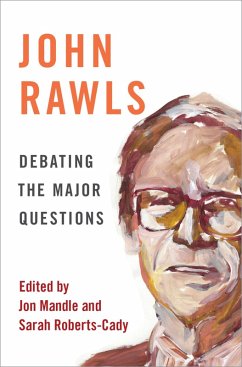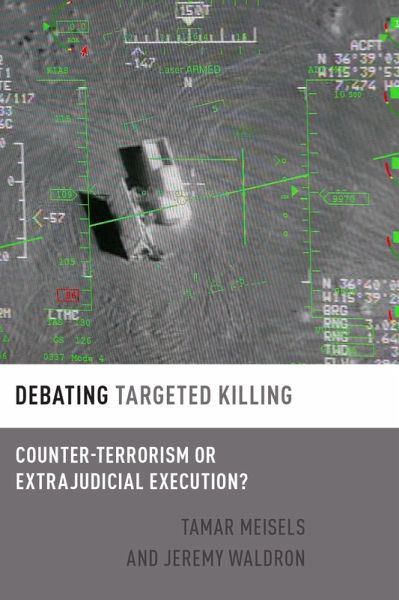
Debating Targeted Killing (eBook, ePUB)
Counter-Terrorism or Extrajudicial Execution?
Versandkostenfrei!
Sofort per Download lieferbar
11,95 €
inkl. MwSt.
Weitere Ausgaben:

PAYBACK Punkte
6 °P sammeln!
Known terrorists are often targeted for death by the governments of Israel and the United States. Several thousand have been killed by drones or by operatives on the ground in the last twenty years. Is this form of killing justified, when hundreds or thousands of lives are possibly at risk at the hands of a known terrorist? Is there anything about it that should disturb us? Ethically-sound and practical answers to these questions are more difficult to come by than it might seem. Renowned political theorists Jeremy Waldron and Tamar Meisels here defend two competing positions on the legitimacy ...
Known terrorists are often targeted for death by the governments of Israel and the United States. Several thousand have been killed by drones or by operatives on the ground in the last twenty years. Is this form of killing justified, when hundreds or thousands of lives are possibly at risk at the hands of a known terrorist? Is there anything about it that should disturb us? Ethically-sound and practical answers to these questions are more difficult to come by than it might seem. Renowned political theorists Jeremy Waldron and Tamar Meisels here defend two competing positions on the legitimacy of targeted killing as used in counterterrorism strategy in this riveting and essential for-and-against book. The volume begins with a joint introduction, briefly setting out the terms of discussion, and presenting a short historical overview of the practice: what targeted killing is, and how it has been used in which conflicts and by whom. It then hones in on killings themselves and the element of targeting. The authors tackle difficult and infinitely complex subjects, for example the similarities and differences between targeted killing of terrorists and ordinary killings in combat, and they ask whether targeted killing can be regarded as a law enforcement strategy, or as a hybrid between combat and law enforcement. They compare the practice of targeted killing with assassination and the use of death squads. And they consider the likelihood that targeted killing has been or will be abused against insurgents, criminals, or political opponents. Meisels analyzes the assassination by Israeli operatives of nuclear scientists working for regimes hostile to Israel. Meisels and Waldron carefully consider whether this sort of killing can ever be justified in terms of the danger it, in theory, averts. The conclusions drawn are at once as surprising as they are insightful, cautioning us against a world in which targeted killing is the norm as it proliferates rapidly. This is essential reading not only for students of political and war theory and military personnel, but for anyone interested in or concerned by the future of targeted killing.
Dieser Download kann aus rechtlichen Gründen nur mit Rechnungsadresse in A, B, BG, CY, CZ, D, DK, EW, E, FIN, F, GR, HR, H, IRL, I, LT, L, LR, M, NL, PL, P, R, S, SLO, SK ausgeliefert werden.




